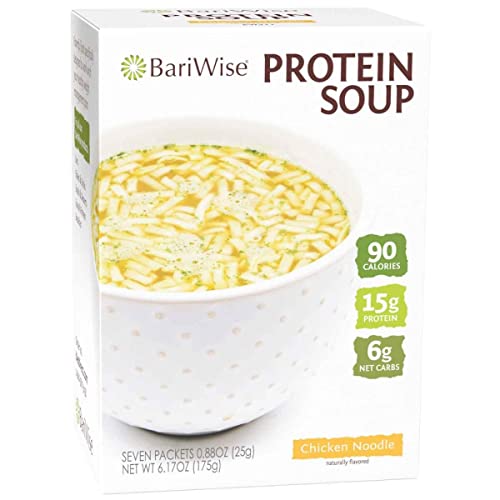Spiky Bugger
Well-Known Member
- Joined
- Jan 5, 2014
- Messages
- 6,310
I don’t know Sharon or Theresa...but this was a relatively public post that has been shared. So I’m sharing it again. I hope you find it informative.
Sharon Abramowitz
Yesterday at 8:03 AM ·
So, some of my friends are calling and asking about the new coronavirus. I'll tell you what I am telling them:
1. The virus started as a zoonotic virus that jumped from animals to humans. Early reports talked about pigs and chickens, now it‘s bats and snakes. Science is working on it, but the animal markets in China have long been expected to be a primary source for the next zoonotic virus jump and have been watched closely for this. So -
Lesson 1: If you don't have to, try not to be a pig or chicken farmer or trader in China.
2. This particular coronavirus is highly contagious, but the mechanism of human to human transmission is unclear (probably respiratory, via aerosolized virus or physical contact with the virus). So
Lesson 2: If it ever shows up here in a widespread way, you could get it.
3. As of right now, the case fatality rate for coronavirus appears to be relatively low, on par with the flu. Data is still being collected. So
Lesson 3: if you get it, you probably won't die.
4. The disease is in multiple countries, and it is likely to spread. There is a big push to put appropriate controls in place everywhere, from China, to Brookline Massachusetts schools. If you are a US resident, don't panic or change anything you are doing as part of your daily routine unless if you are told otherwise by an official. The US Centers for Disease Control is the best in the world, and our Massachusetts Public Health system ain't too shabby either. So
Lesson 4: Listen to your local authorities.
5. For people who worry about what happens when a pandemic hits, like a World Health Organization pro who sees this all the time, here are two good rules of thumb: keep your kids home from school when you are told to do so, and keep a six week supply of food in your home (and water or water catchment system) in case you ever have to live through a quarantine.
Lesson 5: If you're normal, ignore this message. If you're a little nuts, buy food and water. (FWIW in my house we usually have about 3 weeks supply, mainly dried beans and pulses, which need a lot of water, so keep that in mind).
6. This isn't likely to be the big one in your life. So
Lesson 6: GET YOUR KIDS VACCINATED AND KEEP UPDATED ON YOUR ADULT VACCINES, INCLUDING THE FLU VACCCINE.
Also: From Theresa O'Keefe: The only things I would add to this recommendation are two basic items -
(a) learn to wash your hands properly (20 sec with water and soap - long enough to sing Happy Birthday twice) and do it frequently (i.e. every time you enter your house) and
(b) learn to NEVER touch your eyes or nose with your bare hands (ALWAYS use a tissue or fabric) - viruses enter through your eyes and nose so prevent.
Sharon Abramowitz
Yesterday at 8:03 AM ·
So, some of my friends are calling and asking about the new coronavirus. I'll tell you what I am telling them:
1. The virus started as a zoonotic virus that jumped from animals to humans. Early reports talked about pigs and chickens, now it‘s bats and snakes. Science is working on it, but the animal markets in China have long been expected to be a primary source for the next zoonotic virus jump and have been watched closely for this. So -
Lesson 1: If you don't have to, try not to be a pig or chicken farmer or trader in China.
2. This particular coronavirus is highly contagious, but the mechanism of human to human transmission is unclear (probably respiratory, via aerosolized virus or physical contact with the virus). So
Lesson 2: If it ever shows up here in a widespread way, you could get it.
3. As of right now, the case fatality rate for coronavirus appears to be relatively low, on par with the flu. Data is still being collected. So
Lesson 3: if you get it, you probably won't die.
4. The disease is in multiple countries, and it is likely to spread. There is a big push to put appropriate controls in place everywhere, from China, to Brookline Massachusetts schools. If you are a US resident, don't panic or change anything you are doing as part of your daily routine unless if you are told otherwise by an official. The US Centers for Disease Control is the best in the world, and our Massachusetts Public Health system ain't too shabby either. So
Lesson 4: Listen to your local authorities.
5. For people who worry about what happens when a pandemic hits, like a World Health Organization pro who sees this all the time, here are two good rules of thumb: keep your kids home from school when you are told to do so, and keep a six week supply of food in your home (and water or water catchment system) in case you ever have to live through a quarantine.
Lesson 5: If you're normal, ignore this message. If you're a little nuts, buy food and water. (FWIW in my house we usually have about 3 weeks supply, mainly dried beans and pulses, which need a lot of water, so keep that in mind).
6. This isn't likely to be the big one in your life. So
Lesson 6: GET YOUR KIDS VACCINATED AND KEEP UPDATED ON YOUR ADULT VACCINES, INCLUDING THE FLU VACCCINE.
Also: From Theresa O'Keefe: The only things I would add to this recommendation are two basic items -
(a) learn to wash your hands properly (20 sec with water and soap - long enough to sing Happy Birthday twice) and do it frequently (i.e. every time you enter your house) and
(b) learn to NEVER touch your eyes or nose with your bare hands (ALWAYS use a tissue or fabric) - viruses enter through your eyes and nose so prevent.
Last edited:

































